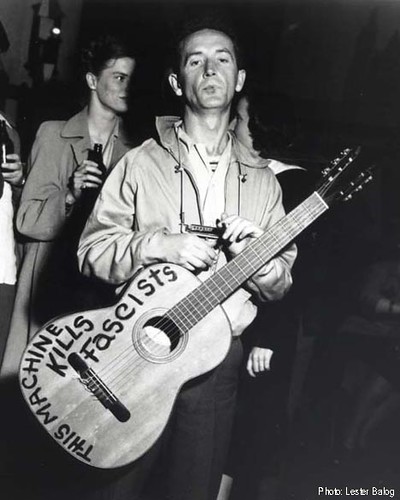The Final Solution
The occupation of Gaza did not begin this year, after Hamas was elected, nor did it end with the disengagement a year ago. The occupation is four decades old and still going strong in both the West Bank and Gaza. In that time Israel has followed a consistent policy of subjugating the Palestinian population, imprisoning it inside ever-shrinking ghettos, sealing it off from contact with the outside world, and destroying its chances of ever developing an independent economy.
Since the outbreak six years ago of the second intifada – the Palestinians' uprising against the occupation – Israel has tightened its system of controls. It has sought to do so through two parallel, reinforcing approaches.
First, it has imposed forms of collective punishment to weaken Palestinian resolve to resist the occupation, and encourage factionalism and civil war. Second, it has "domesticated" suffering inside the ghettos, ensuring each Palestinian finds himself isolated from his neighbors, his concerns reduced to the domestic level: how to receive a house permit, or get past the wall to school or university, or visit a relative illegally imprisoned in Israel, or stop yet more family land being stolen, or reach his olive groves.
The goals of both sets of policies, however, are the same: the erosion of Palestinian society's cohesiveness, the disruption of efforts at solidarity and resistance, and ultimately the slow drift of Palestinians away from vulnerable rural areas into the relative safety of urban centers – and eventually, as the pressure continues to mount, on into neighboring Arab states, such as Jordan and Egypt.
Seen in this light, the bombing of the Gaza power station fits neatly into Israel's long-standing plans for the Palestinians. Vengeance has nothing to do with it.
Another recent, more predictable example was an email exchange published on the Media Lens forum website involving the BBC's Middle East editor, Jeremy Bowen. Bowen was questioned about why the BBC had failed to report on an important peace initiative begun this summer jointly by a small group of Israeli rabbis and Hamas politicians. A public meeting where the two sides would have unveiled their initiative was foiled when Israel's Shin Bet secret service, presumably with the approval of the Israeli government, blocked the Hamas MPs from entering Jerusalem.
Bowen, though implicitly critical of Israel's behavior, believes the initiative was of only marginal significance. He doubts that the Shin Bet or the government were overly worried by the meeting – in his words, it was seen as no more than a "minor irritant" – because the Israeli peace camp has shown a great reluctance to get involved with the Palestinians since the outbreak of the intifada in 2000. The Israeli government would not want Hamas looking "more respectable," he admits, but adds that that is because "they believe that it is a terrorist organization out to kill Jews and to destroy their country."
In short, the Israeli government cracked down on the initiative because they believed Hamas was not a genuine partner for peace. Again, at least apparently in Bowen's view, Israel was acting in good faith: when it warns that it cannot talk with Hamas because it is a terrorist organization, it means what it says.
But what if, for a second, we abandon the assumption of good faith?
Hamas comprises a militant wing, a political wing and a network of welfare charities. Israel chooses to characterize all these activities as terrorist in nature, refusing to discriminate between the group's different wings. It denies that Hamas could have multiple identities in the same way the Irish Republican Army, which included a political wing called Sinn Fein, clearly did.
Some of Israel's recent actions might fit with such a simplistic view of Hamas. Israel tried to prevent Hamas from standing in the Palestinian elections, only backing down after the Americans insisted on the group's participation. Israel now appears to be destroying the Palestinians' governing institutions, claiming that once in Hamas' hands they will be used to promote terror.
The Israeli government, it could be argued, acts in these ways because it is genuinely persuaded that even the political wing of Hamas is cover for terrorist activity.
But most other measures suggest that in reality Israel has a different agenda. Since the Palestinian elections six months ago, Israel's policies towards Hamas have succeeded in achieving one end: the weakening of the group's moderates, especially the newly elected politicians, and the strengthening of the militants. In the debate inside Hamas about whether to move towards politics, diplomacy and dialogue, or concentrate on military resistance, we can guess which side is currently winning.
The moderates, not the militants, have been damaged by the isolation of the elected Hamas government, imposed by the international community at Israel's instigation. The moderates, not the militants, have been weakened by Israel rounding up and imprisoning the group's MPs. The moderates, not the militants, have been harmed by the failure, encouraged by Israel, of Fatah and Hamas politicians to create a national unity government. And the approach of the moderates, not the militants, has been discredited by Israel's success in blocking the summer peace initiative between Hamas MPs and the rabbis.
In other words, Israeli policies are encouraging the extremist and militant elements inside Hamas rather the political and moderate ones. So why not assume that is their aim?
Why not assume that rather than wanting a dialogue, a real peace process and an eventual agreement with the Palestinians that might lead to Palestinian statehood, Israel wants an excuse to carry on with its four-decade occupation – even if it has to reinvent it through sleights of hand like the disengagement and convergence plans?
Why not assume that Israel blocked the meeting between the rabbis and the Hamas MPs because it fears that such a dialogue might suggest to Israeli voters and the world that there are strong voices in Hamas prepared to consider an agreement with Israel, and that given a chance their strength and influence might grow?
Why not assume that the Israeli government wanted to disrupt the contacts between Hamas and the rabbis for exactly the same reasons that it has repeatedly used violence to break up joint demonstrations in Palestinian villages like Bilin staged by Israeli and Palestinian peace activists opposed to the wall that is annexing Palestinian farm land to Israel?
And why, unlike Bowen, not take seriously opinion polls like the one published this week that show 67 per cent of Israelis support negotiations with a Palestinian national unity government (that is, one including Hamas), and that 56 per cent favor talks with a Palestinian government – whoever is leading it? Could it be that faced with these kinds of statistics Israel's leaders are terrified that, if Hamas were given the chance to engage in a peace process, Israeli voters might start putting more pressure on their own government to make meaningful concessions?
In other words, why not consider for a moment that Israel's stated view of Hamas may be a self-serving charade, that the Israeli government has invested its energies in discrediting Hamas, and before it secular Palestinian leaders, because it has no interest in peace and never has? Its goal is the maintenance of the occupation on the best terms it can find for itself.
On much the same grounds, we should treat equally skeptically another recent Israeli policy: the refusal by the Israeli Interior Ministry to renew the tourist visas of Palestinians with foreign passports, thereby forcing them to leave their homes and families inside the occupied territories. Many of these Palestinians, who were originally stripped by Israel of their residency rights in violation of international law, often when they left to work or study abroad, have been living on renewable three-month visas for years, even decades.
Amazingly, this compounding of the original violation of these Palestinian families' rights has received almost no media coverage and so far provoked not a peep of outrage from the big international human rights organizations, such as Human Rights Watch and Amnesty International.
I can hazard a guess why. Unusually Israel has made no serious attempt to justify this measure. Furthermore, unlike the two examples cited above, it is difficult to put forward even a superficially plausible reason why Israel needs to pursue this policy, except for the obvious motive: that Israel believes it has found another bureaucratic wheeze to deny a few more thousand Palestinians their birthright. It is another small measure designed to ethnically cleanse these Palestinians from what might have been their state, were Israel interested in peace.
Unlike the other two examples, it is impossible to assume any good faith on Israel's part in this story: the measure has no security value, not even of the improbable variety, nor can it be sold as an overreaction, vengeance, to a provocation by the group affected.
Palestinians with foreign passports are among the richest, best educated and possibly among the most willing to engage in dialogue with Israel. Many have large business investments in the occupied territories they wish to protect from further military confrontation, and most speak fluently the language of the international community – English. In other words, they might have been a bridgehead to a peace process were Israel genuinely interested in one.
But as we have seen, Israel isn't. If only our media and human rights organizations could bring themselves to admit as much. But because they can't, the transparently bad faith underpinning Israel's administrative attempt at ethnic cleansing may be allowed to pass without any censure at all.


















